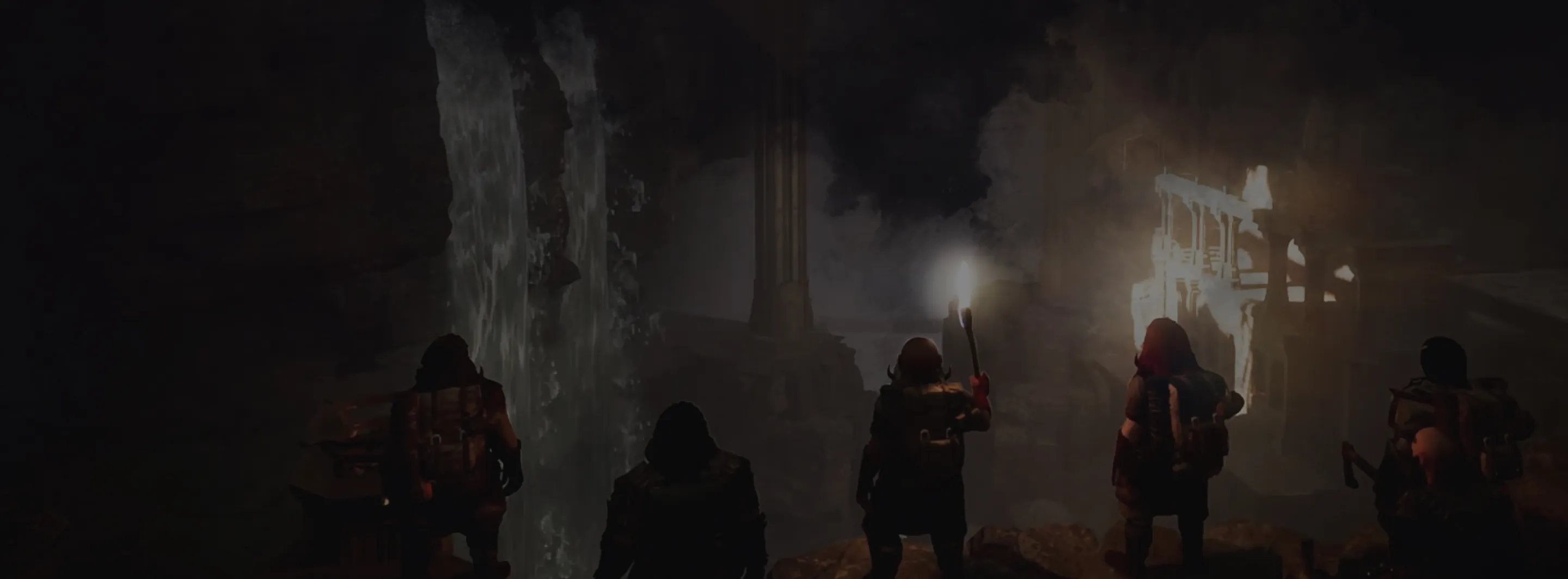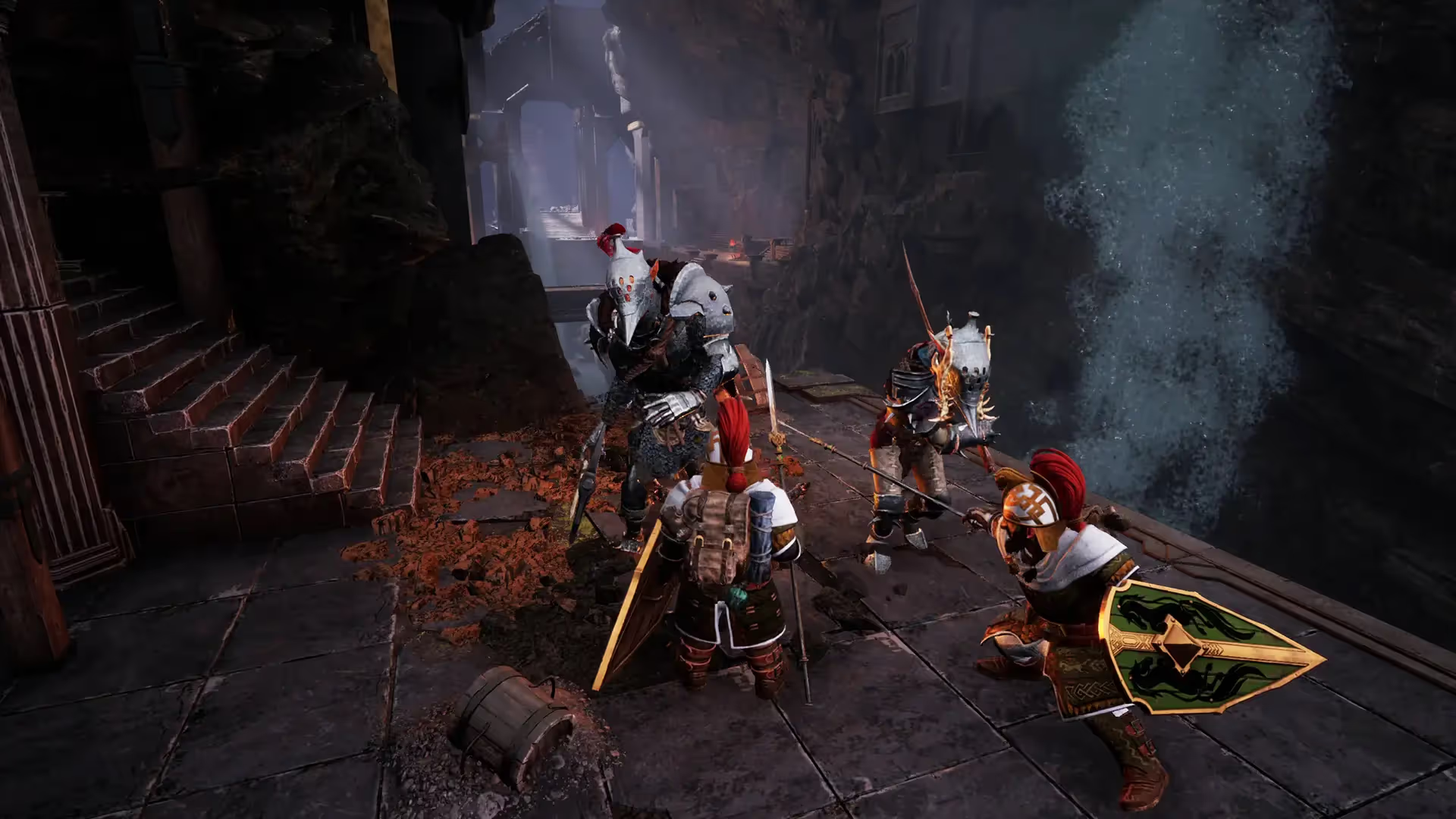Blog: Creating an Authentic Tolkien Journey for Fans, By Fans

2024/07/03
Cross-posted from Steam
We set out to make a game that felt 100% authentic to Professor Tolkien’s Middle-earth™. Something for fans, by fans. The response from The Lord of the Rings community has been wonderful.
The podcast Keep on Tolkien said, “There are so many things... so many little lores that they created for this game that fits so well I couldn’t tell if it was just something I didn’t know or what. That’s good lore building. It's believable.”
And on YouTube, The Nerd of the Rings said, “It feels like this game was built specifically for me.”

Building out the lore started with the Dwarves. We knew we wanted something with a lot at stake. And what better place to survive than Moria? The great realm of Khazad-dûm would let us explore their entire history.
But fans like us know the War of the Ring inside and out. How do we avoid rehashing the same things we’ve seen before? With help from our friends at Middle-earth Enterprises it became clear: the Fourth Age! We could go beyond the end of the Ring to tell the epic tale of how the Dwarves reclaimed their ancient homeland.

When our story begins, decades after The Return of the King, there are two great Dwarven realms. To the north lies Erebor and the current King Under the Mountain: Thorin II, called Stonehelm. To the south lies the Glittering Caves, led by the new Lord Gimli.

He has promised his old friend Aragorn to rebuild the gates of Minas Tirith with Mithril. That precious metal is only found under the mountains of Khazad-dûm. And this makes Gimli impatient to get in there and take it back!
King Stonehelm refuses to let Erebor help. He believes they must wait “Till Durin Wakes From Sleep.” It’s a phrase the Dwarves often say to each other as a farewell, to remind themselves that their work here in Middle-earth is not done. But the King takes it very literally and believes any attempt to enter Moria is doomed unless led by the return of the great father of the Dwarves.

Gimli, being a less traditional Dwarf in experience and thinking, does not want to wait. That is where our players get involved in this tale. Along the way they’ll discover the history of Khazad-dûm, what happened when the Balrog emerged, the Dwarves’ own creation myth and how they see their role in the world.
That is a lot of weighty topics to adapt or invent! It had to be done in a way that felt authentic. So how did we do it?
It started with the team's experience. The game's Director, Jon-Paul Dumont, previously worked as the loremaster for The Lord of the Rings games at Electronic Arts. Many of the engineering team worked on The Return of the King game for the PlayStation.
Together with the rest of the team, we dove into everything Professor Tolkien wrote about the Dwarves. We set out a few key values that stayed with us the entire development of the game.
- Only use Professor Tolkien’s actual words. Avoid secondary interpretations.
- Every choice must honor the spirit of Middle-earth, as described by the text, its influences and his letters.
- Reinforce and never undercut the stakes of the published works.
This last value is the reason we do not have a Balrog. We had to live our values and that meant we would not lessen Gandalf’s sacrifice to Durin’s Bane. That was his story, not ours.
With our values in hand, we enlisted the help of four experts to aid in our quest.

First, we brainstormed how the world building and gameplay could come together with veteran tabletop game designer and writer, T.S. Luikhart. He contributed to many of the published Lord of the Rings role-playing games. These sessions are when the framework for the player’s journey came together.

Second, we wanted to immerse ourselves in what it meant to be a Dwarf in the same way J.R.R. Tolkien would have – through language! We turned to famed linguist David Salo, who consulted on all six of the Peter Jackson films and published a book on the Elvish languages. For Return to Moria he invented an entire lexicon and grammar for Khuzdul. He also translated much of the game’s spoken dialogue.

Third, we needed to know if we were on the right track. Well into development we had concept art, built environments and a full story treatment. This is when we reached out to The Tolkien Professor, Corey Olsen. We frustrated him by refusing to tell him anything about the game until he read our planned narrative. We needed him to come in cold and tell us if our plans would feel authentic and would pass muster with fans who studied the lore as much as him.

Finally, it would only be right if everyone’s favorite dwarf reviewed things. It was a highlight of the entire project to work directly with John Rhys-Davies as he reprised his role as Gimli. Hearing him say the opening lines of the game just felt right. Only the real Gimli could say “Everything you know about Dwarves was told to you by Hobbits and Elves. It is time we told it ourselves.”
From the beginning we knew the story of Khazad-dûm and Durin’s return is not our story, it belongs to Professor Tolkien. We were just the next set of hands and minds to try our best to tell the tale. And for those of you who have experienced the journey's end know its just the first part of that grand adventure.
The result is world building and a campaign story we hope will feel right at home with your love of The Lord of the Rings!


The Lord of the Rings: Return to Moria is coming to Steam and Xbox in Fall 2024 (exact date TBA) alongside the Third Title Update and Sandbox for all platforms. Join our Discord and choose the role Forge Fire to get alerts for Dev Updates about Return to Moria!

Unite with Your Fellow Dwarves
Adventure awaits in our growing discord community. Join to discover all things Return to Moria.






